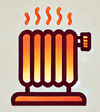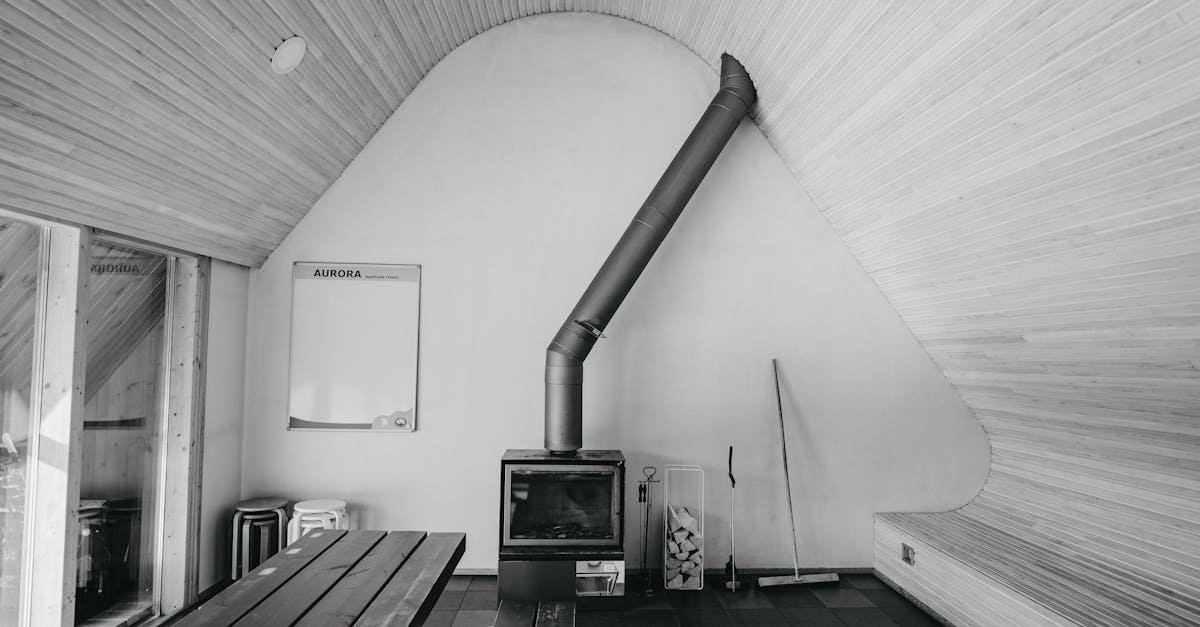State heating rebate programs offer financial assistance to help you offset the costs of heating your home. These programs can significantly reduce your energy bills, making it more affordable to stay warm during the colder months.
By participating in these rebates, you can access funds for energy-efficient upgrades or receive direct rebates on your heating expenses. Each state has its own set of eligibility requirements and application processes, so it’s crucial to research what’s available in your area. Taking advantage of these programs not only saves you money but also contributes to a more sustainable environment.
Overview Of State Heating Rebate Programs
State heating rebate programs offer financial aid to help you reduce heating costs. These programs assist in lowering energy bills and ensure warmth during winter months. Participants receive funds for energy-efficient upgrades or direct rebates on heating expenses. Requirements and application processes vary by state, making it essential to research your specific program.
New York State Programs
NYS Clean Heat Rebate Program:
This program, provided by NYSEG and RG&E, offers incentives for electric or combination natural gas and electric customers. You can receive rebates for replacing existing furnaces, boilers, or water heaters with eligible heat pumps. Rebates include up to $4,000 for electric panel upgrades and $700 for heat pump water heater purchases. Note that full load heat pump projects replacing existing full load heat pumps don’t qualify. But, air source heat pumps replaced by ground source heat pumps do qualify.
NYSERDA Programs:
The New York State Energy Research and Development Authority (NYSERDA) provides various rebates for energy-efficient HVAC equipment. These programs include rebates for installing qualified geothermal or air-source heat pumps and heat pump water heaters specifically in Upstate New York.
Benefits Of State Heating Rebate Programs
State heating rebate programs provide crucial support to homeowners and renters. These programs help reduce energy costs while promoting energy efficiency.
Financial Assistance
State heating rebate programs, backed by the Inflation Reduction Act of 2022, offer significant financial aid. You might receive federal and state rebates based on your income. For instance, households earning less than 80% of their state’s median income can get up to 100% of available rebates. This amount could reach $9,750 for a heat pump or heat pump water heater. If your income falls between 80% and 150% of the median, you can still receive 50% of the rebates. That’s potentially $4,875.
You can also combine these rebates with federal tax credits. This combination boosts your financial relief, making energy-efficient upgrades more affordable. Take advantage of this support to make your home more energy-efficient.
Environmental Impact
State heating rebate programs also enhance the environment. By focusing on energy efficiency, these programs help decrease energy consumption. Using energy-efficient equipment reduces greenhouse gas emissions and lessens your carbon footprint. When you upgrade to systems like heat pumps, you contribute to a cleaner environment.
Programs, like New York’s NYS Clean Heat Rebate Program, incentivize replacing old heating systems. These upgrades not only save you money but also promote sustainability. Choosing energy-efficient solutions fosters a healthier planet for future generations.
Eligibility Criteria For State Heating Rebate Programs
Eligibility for state heating rebate programs varies based on specific criteria, ensuring that funds assist those who need it most. You’ll find two main areas of focus: income requirements and energy efficiency standards.
Income Requirements
Eligibility often depends on your income level. Households earning below 80% of the Area Median Income (AMI) qualify for full rebates. For example, if your household’s income is $50,000 and the AMI is $62,500, you qualify for the full rebate. Households with incomes between 80% and 150% of the AMI may receive 50% rebates. So, if you earn $75,000 in this scenario, you can get half of the available rebate amount. The Home Energy Rebates program under the Inflation Reduction Act also offers higher rebates for qualifying low- and moderate-income households.
Energy Efficiency Standards
State heating rebate programs require your new heating system to meet specific energy efficiency standards. For instance, installations must use energy-efficient heat pumps. These systems help reduce energy consumption and lower monthly heating bills. You’ll find requirements outlined for various systems, including electric and natural gas-based options. Upgrading to compliant systems ensures that you not only receive rebates but also contribute to overall energy savings in your area.
Application Process For State Heating Rebate Programs
The application process for state heating rebate programs varies by state. Here are key steps to follow for a successful application.
Documentation Needed
You’ll need specific documents to apply for a rebate. Gather the following:
- Proof of Income: Include recent pay stubs or tax returns to show your income level.
- Energy Audit Report: Provide the report from a qualified energy audit if required by your state.
- Invoices and Receipts: Keep copies of all invoices and receipts for any upgrades or installations.
- Contractor Certification: Submit proof that the contractor is approved by your state energy office.
- Application Form: Complete the official application form provided by your state.
Tips For A Successful Application
Craft a strong application by following these tips:
- Read Program Guidelines: Familiarize yourself with your state’s specific program requirements.
- Fill Out Forms Carefully: Ensure all fields are complete and accurate.
- Submit Early: Apply as soon as the program opens to avoid missing deadlines.
- Double-Check Documentation: Verify you’ve included all required documents before submission.
- Stay In Touch: Reach out to your state energy office for any clarifications on the application process.
Following these steps will enhance your chances of receiving the heating rebate you seek.
Comparison Of State Heating Rebate Programs By State
State heating rebate programs differ across the U.S., each with unique benefits and eligibility criteria. Here’s a comparison of several states offering these rebates:
New York
- NYS Clean Heat Rebate Program: Offers rebates up to $4,000 for electric panel upgrades and $700 for heat pump water heaters.
- Eligibility: Households under 80% of AMI can access full rebates, while those between 80% and 150% of AMI receive half.
California
- California Home Energy Renovation Opportunity (HERO): Provides financing options for energy efficiency upgrades. Rebates may reach $5,000 depending on upgrades.
- Eligibility: Varies by local jurisdiction, typically includes low-income households.
Massachusetts
- Mass Save Program: Offers up to $2,000 in rebates for energy-efficient heating systems, including heat pumps.
- Eligibility: Primarily targets low-income households, with 100% rebates for those under 60% of AMI.
Michigan
- Michigan Saves: This program provides energy efficiency loans and rebates up to $1,500 for eligible heating systems.
- Eligibility: Programs focus on low- to moderate-income households.
Illinois
- Illinois Cooling and Heating Rebates: Rebates up to $400 are available for energy-efficient HVAC systems.
- Eligibility: Income-based, offers varying rebate amounts for different AMI thresholds.
Colorado
- Colorado Energy Office: Offers rebates up to $2,000 for home energy upgrades.
- Eligibility: Targets homeowners below 80% of AMI for full rebates, and under 150% for partial.
Oregon
- Oregon Department of Energy: Provides rebates for energy-efficient heat pumps, potentially reaching $1,500.
- Eligibility: Low-income households qualify for full rebates.
- Texas Home Energy Assistance Program (HEAP): Assists low-income households with heating and cooling costs.
- Eligibility: Targets households under 200% of the federal poverty level.
Many states also require that new heating systems meet specific energy efficiency standards, ensuring participants receive both financial assistance and energy savings. Always check with local energy offices for the most accurate information about specific programs and application requirements.
Conclusion
State heating rebate programs offer a valuable opportunity for you to save money on heating costs while making a positive impact on the environment. By taking advantage of these incentives, you can upgrade to energy-efficient systems and enjoy lower energy bills.
Whether you live in New York or any other state, exploring your local programs can lead to significant financial relief. With various eligibility criteria and application processes, it’s essential to stay informed and prepared.
Investing in energy-efficient upgrades not only benefits your wallet but also contributes to a sustainable future. Don’t miss out on these programs that can help you stay warm and reduce your carbon footprint.








